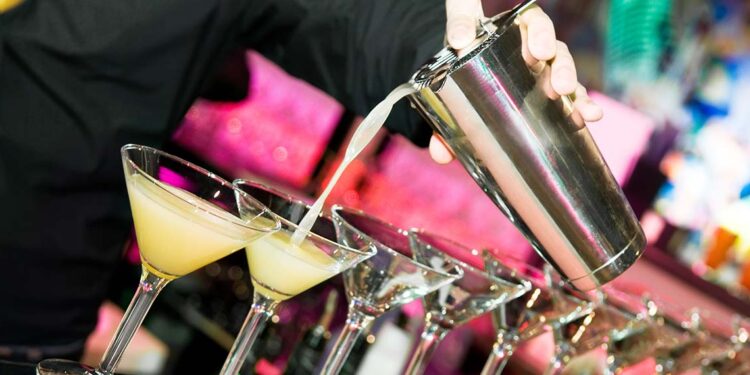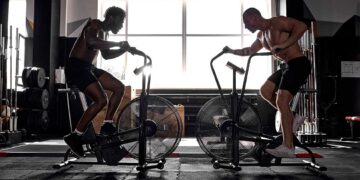You hit the gym consistently, eat well, and stay disciplined. But then comes the weekend, and you think, “A couple of drinks won’t hurt, right?” Not so fast. Alcohol effects on gym, even with casual drinking, are serious and can quietly sabotage both your physical performance and mental sharpness. Let’s break down exactly how alcohol affects your gym results and mindset so you can make informed choices.
How Alcohol Messes With Your Mindset & Motivation
Poor Sleep = Low Energy & Focus
You might think alcohol helps you relax, but in reality, it disrupts deep sleep—the crucial stage where your body recovers and produces growth hormones.
Poor sleep leads to:
- Low energy levels the next day 😴
- Poor workout performance 🏋️
- Weakened willpower, making it harder to stick to healthy habits 🚫
Decision-Making Goes Out the Window
Ever noticed how after a few drinks, you start craving junk food? That’s because alcohol impairs your judgment and makes it harder to resist unhealthy choices. A night out drinking often leads to:
- Breaking consistency, which is the key to real progress 📉
- Skipping workouts due to hangovers 🤕
- Overeating junk food 🍕
Increased Anxiety & Stress
Alcohol messes with your neurotransmitters, increasing anxiety and stress levels the next day. This can negatively impact your motivation to train, your discipline, and even your overall mental well-being.
Habit Loops That Hold You Back
Drinking regularly creates a cycle of setbacks:
- You drink → Feel good temporarily
- You sleep poorly → Wake up tired
- You skip the gym or have a bad workout
- You feel guilty → Drink again to cope
This loop makes it harder to stay on track with your goals, leading to stagnation or even regression.
Alcohol and Muscle Growth: The Silent Gains Killer
Slower Protein Synthesis = Slower Muscle Growth
Your body builds muscle through protein synthesis, a process that alcohol directly inhibits. Studies show that alcohol can reduce muscle protein synthesis by up to 37% after exercise. That means if you train hard and drink later, your body is struggling to repair and grow muscle tissue effectively.
Testosterone Drop = Lower Strength Gains
Testosterone is critical for muscle growth and recovery. Alcohol consumption, even at moderate levels, can lower testosterone levels for up to 24 hours after drinking. Less testosterone means slower muscle recovery, less strength, and more fat storage—not exactly the goals you had in mind.
Dehydration = Poor Performance
Alcohol is a diuretic, meaning it pulls water from your body. Dehydration impacts muscle function, endurance, and recovery, making your next gym session feel way harder than it should. If you ever wondered why your Monday workouts feel sluggish after a drinking weekend—this is why.
Increased Cortisol = More Fat Storage
Alcohol spikes cortisol, the stress hormone that breaks down muscle and encourages fat storage. It’s a double hit: you lose muscle and gain fat, making it harder to maintain the lean, strong physique you’re working for.
How Much Alcohol Is Too Much for Fitness?
Even occasional drinking has its downsides, but how much is too much? Let’s break it down:
| Amount of Alcohol | Effects on Gym Performance & Mindset |
|---|---|
| 1-2 drinks/week | Minimal impact, but sleep & hydration may still be affected 💤💧 |
| 3-5 drinks/week | Noticeable drop in recovery, strength, and motivation 📉🏋️♂️ |
| 6+ drinks/week | Major impairment to muscle growth, testosterone, sleep, and mental focus ❌💀 |
If you truly want optimal performance, keeping alcohol to a bare minimum (or none at all) is your best bet.
How to Minimize Alcohol’s Impact on Your Fitness
If you do choose to drink, here’s how to reduce the damage:
✅ Hydrate Aggressively
Drink a glass of water per alcoholic drink to minimize dehydration.
✅ Choose Lower-Calorie Drinks
Go for vodka with soda over sugary cocktails or beer to limit excess calories.
✅ Avoid Drinking Right After a Workout
Give your body at least 24 hours to recover before consuming alcohol.
✅ Limit to Special Occasions
Instead of weekly drinking, save it for once a month to minimize setbacks.
✅ Prioritize Sleep & Recovery
If you drink, ensure you sleep extra the next night to recover fully.
So Is Alcohol Worth It?
If you’re serious about building muscle, improving gym performance, and staying mentally sharp, alcohol is doing you no favors. While an occasional drink won’t destroy your progress, regular drinking quietly sabotages your hard work. ⚠️
The real question is: Is the short-term buzz worth the long-term setbacks? 🤔 If your goal is peak performance, you already know the answer.
References
Parr, E. B., Camera, D. M., & Burke, L. M. (2014). Alcohol ingestion impairs post-exercise muscle protein synthesis. Journal of Applied Physiology.
Vingren, J. L., et al. (2005). Effects of acute alcohol consumption on testosterone and growth hormone. Alcohol.
Roehrs, T., & Roth, T. (2001). Alcohol’s effects on sleep. Handbook of Clinical Neurology.
Davies, M. (2003). The role of GABA in the effects of alcohol on the brain. Neurochemistry International.












